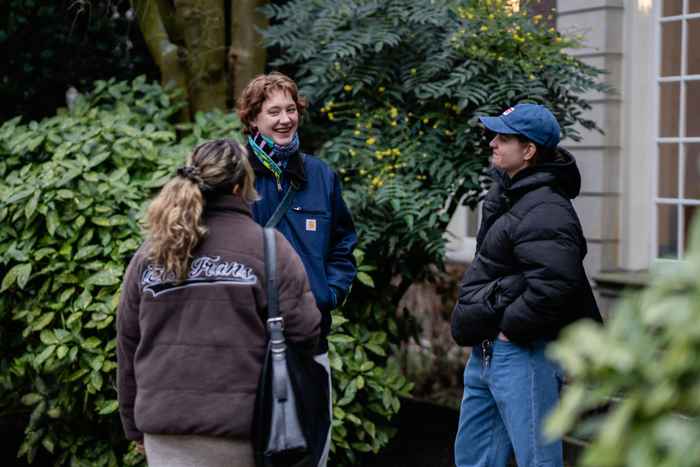Urban Studies: Planning and Living in Cities
In this three-week programme, students will explore the fundamental issues that are shaping the development and evolution of cities in the 21st century. With a focus on real urban places, set in both contemporary and historical contexts, the course will examine subjects such as neighborhood development and regeneration, housing finance and policy, city planning and sustainability, and the impact of household and demographic change on urban lives and spaces.
-
Programme at a glance
Mode of instruction: On-campus (3 weeks) Academic dates: Thursday 25 June - Wednesday 15 July 2026 Housing dates: Wednesday 24 June - Thursday 16 July 2026 Academic fees: Student Fee:
€1750. Read more about what is included in the fees.
Professional Fee:
€2000. Read more about what is included in the fees.
Housing fees: €900 for a private room with shared facilities. Housing is optional. Read more about university-organised accomodation.
Credits: 6 European Credits. Read more about credits and credit transfer. Early admission deadline: Sunday 1 February 2026
Students who require a Schengen Visa to study in the Netherlands are strongly advised to apply before the early deadline to ensure there is enough time to secure a visa appointment before the programme begins.
Regular admission deadline: Sunday 15 March 2026 Who is this programme for? Level: Advanced Bachelors and Masters and working professionals.
Background: Students should have a strong background in the arts and/or social sciences, with a particular focus on expanding their (existing) knowledge in urban studies. Working professionals with a foundation in this field who wish to continue their education are also welcome to apply.
-
Programme description
In this program students will explore housing, planning and policy issues in European cities as well as consider how these apply in other regions of the world. With a focus on real urban contexts, the course will examine subjects such as neighbourhood development and regeneration, housing finance and policy, urban planning and sustainability, and the impact of household and demographic change. Amsterdam is one of Europe’s most vibrant and attractive cities, providing a fascinating laboratory for the exploration and examination of urban issues.
This programme includes lectures on the following topics:
- City spaces and urban places
- Urban development and redevelopment in a European context
- Homes, housing and household issues
- Neighbourhoods and neighbourhood development
- Housing finance and policy
- Non-profit housing associations
- City living, social segregation and inequality
After engaging with expert faculty and guest lecturers in the morning, participants will go on relevant excursions such as neighbourhood tours throughout Amsterdam and other cities within the Netherlands to gain insight into different urban environments, putting theories learned in class in practice.
-
Academic director
Amber Howard is a researcher in Social Policy at the University of Bristol, United Kingdom. Her research centers around housing and inequality, with a particular focus on generational and socio-economic divides. She recently completed a joint PhD from the University of Melbourne (Department of Health Policy) and the University of Amsterdam (Department of Geography, Planning, and International Development Studies), exploring these themes. Before her doctoral studies, Amber earned a Masters degree in Urban Planning at the University of Amsterdam (cum laude) and began her career conducting research for an architectural firm focused on sustainable community development. Amber has taught and co-coordinated in Masters programs Urban Planning and Public Health at the University of Melbourne, engaging with interdisciplinary perspectives on urban policy, planning, and justice. She is now the coordinator of the Winter School program Key Topics in Urban Studies, and academic director of the Summer School programs Urban Changemakers and Urban Studies: Planning and Living in Cities.
-
Explore our community
Want to get to know more about studying in Amsterdam? Follow us on social media and join our summer community. Get a feel for our summer school vibe and our academic and social community, and learn about studying with us through the eyes of past summer school students.



- Mode
- Short-term
- Credits
- 6 ECTS, 3 weeks
- Language of instruction
- English
- Starts in
- July